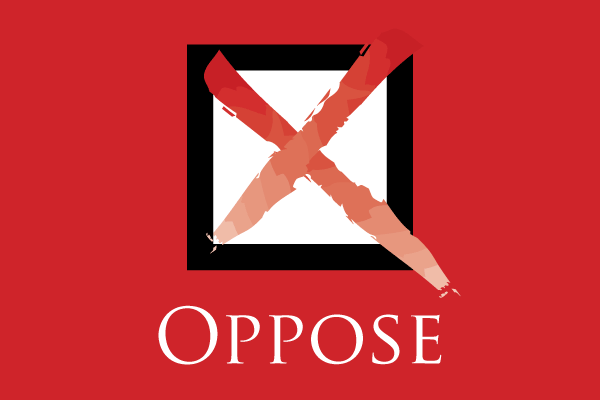
Three California Chamber of Commerce-opposed bills have stalled in the California Assembly and are dead for the year.
The bills dealt with political contributions, non-compete contracts, and renewable hydrogen. Now dead are:
• AB 83 (Lee; D-San Jose), an unconstitutional proposal that would have banned most corporations with even minimal foreign investment from contributing to campaigns or making independent expenditures.
• AB 747 (McCarty; D-Sacramento), which would have augmented an existing exemption to non-compete law and imposed a steep, $5,000 per employee penalty on businesses of any size if it was determined that their employment agreement included an unenforceable non-compete or if they even presented such a term to a contractor or employee.
• AB 1550 (Bennett; D-Ventura), which would have imposed a burdensome standard on hydrogen production that would have driven up the cost of production and potentially risked billions of dollars in federal funding that would have been dedicated to hydrogen production in California.
Ban on Political Contributions
The CalChamber opposed AB 83 because it dramatically expanded the California Political Reform Act of 1974.
In its opposition, the CalChamber pointed out that AB 83 was redundant as “foreign influence” already is prohibited by federal and state law.
At the federal level, the bill was preempted by the Federal Election Campaign Act of 1971, which as amended, prohibits foreign nationals, directly or indirectly, from making contributions “in connection with a federal, state, or local election.” Congress has preempted the entire field; no other jurisdiction may regulate it, and any attempts will give way to federal law.
AB 83 also was unnecessary because the state implemented 2021 legislation, AB 319 (Valladares; R-Santa Clarita), which expanded the prohibition on foreign governments or principals to include contributions and expenditures in connection with an election of a candidate to state or local office.
Moreover, AB 83’s proposal to bar foreign-influenced corporations from making independent expenditures and contributions in furtherance of independent expenditures would be subject to strict scrutiny because it burdened core First Amendment speech. AB 83 was unlikely to survive such scrutiny, as federal courts have not recognized a compelling interest in restricting the speech of “foreign-influenced” individuals or entities, nor in regulating U.S. companies with a nominal amount of foreign ownership.
When those owners could just as easily be isolated from decisions concerning electoral spending, the law was not narrowly tailored to serve the broader interest of keeping U.S. elections free from foreign influence.
Non-Compete Agreements
The CalChamber opposed AB 747 because it expanded the scope of prohibited non-compete agreements. New language in Section 3 of the bill appeared to expand the term “contract in restraint of trade,” and the bill also prohibited any discussion of such terms with prospective employees or contractors because the language of the bill provided that even presenting someone with such language would result in the $5,000 penalty.
Additionally, the bill jeopardized existing business models, implementing a 10% threshold for the sale of business exception. This threshold was problematic because one or more business owners under the 10% threshold could sell all of their interest in the entity to a third party, receive payment for that interest, and immediately compete with the entity. It was arbitrary that most partners could compete while the one who owns an interest greater than 10% could not compete.
In a letter sent to legislators last month, the CalChamber pointed out that the Legislature addressed non-compete agreements just last year, so AB 747 was unnecessary. In 2023, two bills were enacted to bolster enforcement against non-compete agreements and require employers who use them to notify current and former workers: AB 1076 (Bauer-Kahan; D-Orinda) and SB 699 (Caballero; D-Merced).
Renewable Hydrogen
AB 1550 would have had devastating consequences for the launch of a clean, sustainable, and affordable hydrogen market in California—risking approximately $10 billion in private sector investment needed for California’s Hydrogen Hub (ARCHES).
Starting in 2028, AB 1550 would have required hourly matching for all renewable production pathways, meaning electricity production would need to be equal to the electricity consumption for hydrogen on an hourly basis, which does not exist for Renewable Portfolio Standard (RPS) compliance or the grid today.
According to a recent study done by E3, the same entity responsible for modeling the Scoping Plan and Integrated Energy Policy Report, hourly matching will increase production costs up to 108%.
The hourly matching requirement was also problematic because California law does not currently permit physical power purchases by industrial consumers (like electrolytic hydrogen facilities), making time-matching of power that is not self-generated infeasible.
Moreover, the technology and accounting systems to ensure hourly matching do not exist for the Western Energy Coordinating Council (WECC) or RPS.
In its opposition to AB 1550, the CalChamber pointed out that AB 1550 took what was meant to be an incentive and turned it into a standard.
“Like the fuels market today, AB 1550 would again isolate the California market and add unnecessary production costs,” the CalChamber said.
Staff Contacts: Ben Golombek, Ashley Hoffman, Brady Van Engelen

